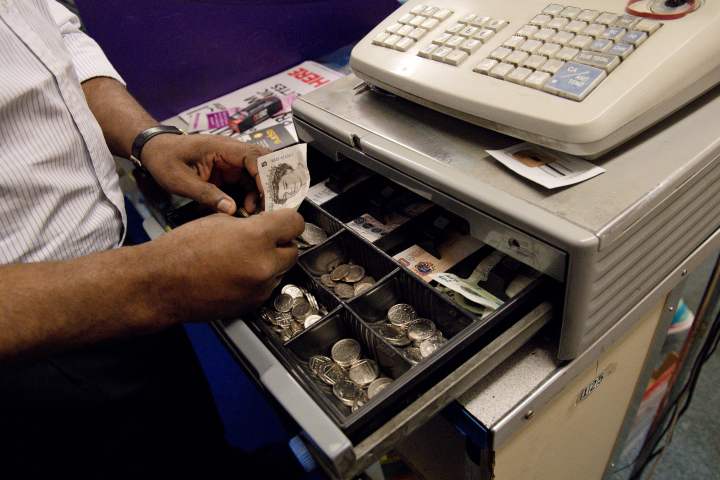
COVID-19 sparked a U.S. coin shortage, but a U.K. surplus
COVID-19 sparked a U.S. coin shortage, but a U.K. surplus

A strange thing happened during the coronavirus pandemic: Business and bank closures caused the supply of coins in America to dry up.
In the early days of the pandemic during lockdown, people weren’t out shopping so that meant they also weren’t spending their money in stores. Later, when the economy reopened, many businesses wouldn’t accept cash and instead encouraged customers to pay with a debit or credit card.
To restore order, the U.S. Mint has been operating at full capacity since June to get 1.6 billion coins in circulation each month for the rest of this year.
While economic pain from COVID-19 has been global and widespread, a coin shortage is not something every country is dealing with — including the U.K.
In fact, coins are in such low demand that the Royal Mint will, for the next decade, stop producing 2 pence and 2 pound coins.
So, what’s with the apparently huge difference in the way British and American shoppers spend money?
On the global edition of “Marketplace Morning Report,” Natalie Ceeney, chair of U.K. financial technology group Innovate Finance, explained the factors at play. Below is an edited version of her conversation with the BBC’s Victoria Craig.
Victoria Craig: Why did the U.K. not experience a coin shortage like the U.S. did?
Natalie Ceeney: One of the big trends over the last decade in the U.K. has been a massive switch away from cash toward digital payments. So if I go back 10 years, six out of every 10 payments were in cash. And that’s fallen pretty dramatically during lockdown. Quite simply, people aren’t using cash as much.
Craig: Here in the U.K., we have technology that lets us tap our cards to make a payment in a shop or on mass transit. We don’t have to insert our cards into a reader, enter a PIN and then go through that process. Has the ease of technology made the transition to digital payments quicker in the U.K. than in the U.S.?
Ceeney: Absolutely, yes. What we know with digital payments is when people get used to doing something, the barriers come down. And, hey, if you can tap a card to use public transport, you can tap a card to buy your sandwiches, you can tap a card to buy anything. Take Sweden for example: It’s one of the fastest countries to go digital. Some of it is technology. But some of it is the fact that actually everybody has a bank account. Everybody trusts the government and the banks will work together. And as a result the banks have all developed seamless technology that, whoever you bank with, you can use and everyone in Sweden can pretty much get banked. Now, if I turn to the U.S., we’ve got a technology adoption issue. It’s much harder to be an innovator in financial services because of the very regional structure of banking. There is a lot more skepticism about the state and about authority that’s sort of inherent in U.S. culture.
Concerns about the shift to digital payments
Craig: Do you think the coronavirus pandemic might force quicker adoption of this kind of technology?
Ceeney: I think it’s absolutely certain that coronavirus will accelerate the shift to digital. It’s raised a big issue, though, because not everybody can use digital. Even in Sweden, there’s been a backlash to the pace of shift to digital payments, because not everybody has the ability to use digital payments. In the U.K., we estimate that 8 million people cannot, at the momen,t use digital payments for a lot of their needs. And as a result, they really need cash. In the U.S., it’s an even bigger population. What COVID has done is absolutely accelerated the shift toward digital. But it’s also shone a spotlight on vulnerability and people who are really getting excluded by our shift to digital.
There’s a lot happening in the world. Through it all, Marketplace is here for you.
You rely on Marketplace to break down the world’s events and tell you how it affects you in a fact-based, approachable way. We rely on your financial support to keep making that possible.
Your donation today powers the independent journalism that you rely on. For just $5/month, you can help sustain Marketplace so we can keep reporting on the things that matter to you.












